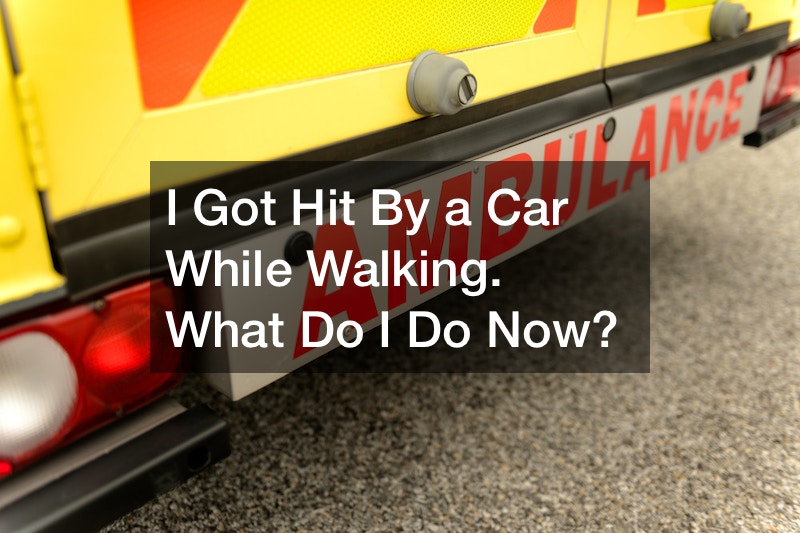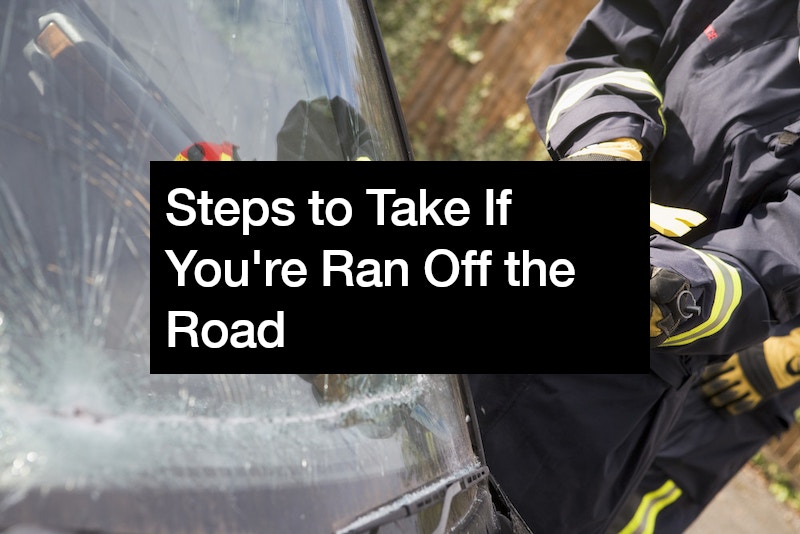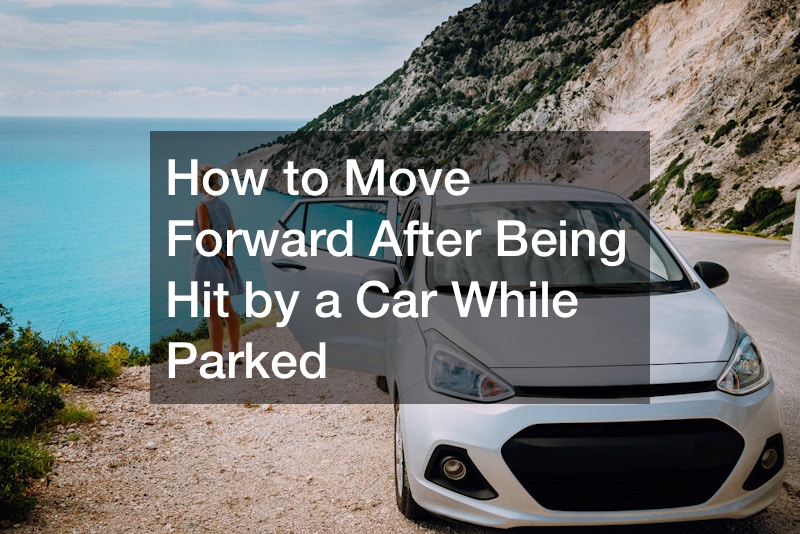If you got hit by a car while walking, it can be unclear what to do next. Should you call a loved one first? 911 or your insurance company? Should you head to the hospital or the police station? Many pedestrians in the U.S. find themselves in this confusing and unfortunate situation.
It’s riskier to be a pedestrian than a motor vehicle user on American roads. According to the CDC, in 2020 alone, 7000 pedestrians were killed by motor vehicle crashes. So, what do you do if you’re involved in a road accident as a pedestrian? In this article, you’ll learn four things to do if you or a loved one got hit by a car while walking.
1. Your Health and Safety First

Motor vehicle-pedestrian crashes are fatal. Therefore, the first thing that should come to mind immediately after you or a loved one is hit by a vehicle is seeking immediate medical attention. Other road users will likely be first responders. Accept their help. Refusing medical attention could worsen your health or weaken your case if you take legal action.
Remember that while injuries such as bruises and fractures are visible, you could have unseen issues such as internal bleeding or trauma that may not be immediately evident. Therefore, visit an emergency room medical care facility before doing anything else. Here are four other essential things you should do to ensure your health and safety if you got hit by a car while walking.
Call 911
While passersby may have good faith and some practice in first aid, you need professionals. If you’re in a position to call 911, immediately inform them you’ve been injured. If you aren’t feeling well, ask one of the bystanders or the motorist driver to call them for you. They are sober and can give exact directions to paramedics and the police to arrive immediately. Police and medics have experience and expertise in dealing with similar cases. Therefore, their response will be more effective, professional, and helpful.
Vacate the Scene

Vacating the scene doesn’t mean walking off and acting as if nothing happened. It means prioritizing your health and safety over arguments and evidence gathering. Some pedestrians verbally exchange with the driver, either accusing them or apologizing and explaining their role in the accident. Since you’re in shock, you may not think clearly about all the facts.
Delaying medical attention can cause bystanders and motorists to surround you. This could cause other problems, such as difficulty breathing because of crowding or more confusion. Ask bystanders of good faith to help you get to a hospital or call 911 immediately.
Inform the Paramedics About Every Injury
In many cases, the paramedics and police aren’t far away from the scene. Have them document any visible injury. If you feel a bit dizzy, tell the first responders. Being as detailed as you can be about possible injuries will allow immediate and effective medical assistance and is more helpful than medics relying on a witness report of where you got hit by a car while walking.
Documentation of injuries at the scene could also help you with further medical attention. For example, if you start getting migraines after an accident, it’ll be easier to link it to the accident and get practical help. Further, the documentation will provide evidence should you decide to sue.
Get Psychological Help Immediately

Your physical health will likely be the priority for first responders. If you or a loved one got hit by a car while walking, their emotional and psychological well-being would also be a mess. Some people may require treatment for anxiety to sleep on to continue with everyday life.
Others may have post-trauma that may inhibit their recovery. While your physical well-being is vital, ensure you get psychological assistance as soon as possible. Some medical care facilities even have a counseling center where you can get all the resources you need to get over your ordeal.
2. Gathering Evidence for the Claim
If you got hit by a car while walking, your health and compensation are the two most essential things. Evidence offers strong support for a personal injury claim. You most likely can’t collect the evidence if the accident is severe. Concentrate on improving because the police will take the necessary evidence on arrival at the accident scene.
However, if you can, gather any evidence that could help you get compensation. Collect information on the make and model of the car that hit you, the vehicle identification number (VIN), vehicle owner and contact information, and insurance information. Ask bystanders to take pictures of you, your injuries, and marks on the vehicle.
If you can note the events on paper, do so while your memory is fresh. You can also ask a witness of good faith to document all events as they went down, the driver’s information, and the car license plate number. You can also wait until after medical treatment to sit down and collect as much information as possible.
Another way to collect and preserve evidence is by keeping your stained clothes. In addition, photos near the scene will provide strong support for your claim. Keep hospital receipts, doctors’ notes, and any prescriptions from the doctor. Such info will be useful not only when you want to take legal action and get compensation from your insurance company.
3. Rehabilitation

In most cases, accidents involving pedestrians are not fatal. Instead, they lead to chronic pain, muscle injury, and joint problems. Many victims require rehabilitation services to regain functionality, deal with chronic pain, and gain the mental strength to move past the accident.
If you or a loved one got hit while walking, you might need to visit a rehab and physical therapy center regularly. Of course, that will mean extra medical bills, which is all the more reason to get compensation for the accident. Here are three common questions survivors of pedestrian accidents ask.
Who Pays for Physical Therapy Visits?
If you or your loved one got hit by a car while walking, the doctor may advise you to seek rehabilitative services such as chiropractic treatment. While you may be eager to get any treatment that reduces your pain and improves your recovery, you may be worried about the costs.
The person who causes the accident will typically be liable for your medical costs, including rehabilitation services. It’s mandatory in the U.S. that each motor vehicle gets insurance coverage. The insurance provider will typically cover the medical costs in case of an accident. These include physical therapy and rehabilitative devices. Your health insurance may also cover some of the costs as you wait for the other party to compensate you.
Will Rehabilitation Really Help?
Rehabilitation and physical therapy are approved interventions for people involved in any injuries. These services will be helpful if you’re having trouble sleeping, have chronic pain, and have a limited range of motion. Some of these symptoms may take time to appear.
Physical therapists will help you manage pain, improve your functionality and regain physical and mental strength without medication. Other interventions typically accompany physical therapy. If a medical practitioner recommends that you go to physical therapy, it is best if you go.
How Long Will I Take in Rehab?
Physical therapy is factor-reliant. That means that there’s no average time for pedestrian accident survivors. Each physical therapy service has its recommended duration. Some may only take a few weeks, while others can go for months. Your injury also determines how long you’ll need physical therapy services.
Broken bones take, on average, eight weeks. Therefore, you might visit the physical therapy center eight times. If you’ve had previous injuries, your time in rehab might be longer. Similarly, if your treatment goals are lofty, you’ll typically take longer.
4. Pursuing Legal Options

If you got hit by a car while walking, you can sue. As we have seen above, you’ll need to go to the hospital, get counseling, visit rehabilitation centers, and most likely skip work days. The motor vehicle owner should compensate you for the consequences on your life. The smart strategy is hiring accident injury lawyers to represent your interests.
While you’ll mostly file a claim against the car’s driver, your injury lawyer may advise on claiming the car’s manufacturer, the government for poor road maintenance, or the vehicle’s owner. You should begin your legal process as soon as possible when details are still fresh and before bills pile up.
What Are My Legal Options?
If you got hit by a car while walking, you have two options. First, you can enter into a settlement with the accused party. With your car accident injury attorneys‘ guidance, you can negotiate for a fair settlement. It is often easier and less expensive because you don’t have to court.
Your second option is to go to trial. The Justice Bureau of Statistics states that 3 – 5% of personal injury cases go to trial. You and your lawyers may come to this conclusion if the other party is unwilling to negotiate for a fair amount. Please note that this route might be lengthy and expensive. However, if you’re convinced it’ll yield better results, you can pursue it.
If you go through the trial, your lawyer will help you prepare with all the case facts. They’ll also represent you and educate you on court processes such as testifying. Sometimes getting a settlement from the court may help you heal faster.
How Much Can I Expect to Receive from my Claim?
How much you can receive from a pedestrian-accident claim depends on many factors and is rarely the same for each individual. The severity of your injuries will play a big role in determining your compensation amount. Your injury also determines your past and future medical costs, which will factor into your claim.
If your attorney can prove easily that the other party is at fault, consistent with accident injury law, you might get a bigger amount. However, if you were also at fault for causing the accident, it’ll affect how much the other party is willing to offer. Lastly, if your prognosis shows a likelihood of quick recovery, you might not get a hefty compensation.
How a Lawyer Helps You
If you got hit by a car while walking, having sufficient evidence can make you quite confident about the case, and thus, you may feel reluctant to hire an attorney conversant with car accident law. You may even wonder, do I need one? The short answer is yes.
The other party has probably already hired their lawyer. Their insurance companies aren’t excited about giving payouts unless necessary. They can easily convince you to take a small settlement if you aren’t conversant with pedestrian-accident laws. With an attorney, you can negotiate for a fair settlement and feel more confident about your evidence in a settlement meeting.
A personal injury lawyer is trained to analyze the case’s facts and determine a fair claim. They’ll use the evidence you have gathered to prove fault on the drivers’ end and minimize the burden on your side. Further, you may be too emotionally involved in the case, and having a professional who can remain objective will only help support your claim.
While knowing what to do if you got hit by a car while walking can be confusing, multiple resources are at your disposal. Professionals such as paramedics, police, and lawyers deal with pedestrian-accident cases daily and will assist you in recovering and getting back to everyday life. Engaging professionals as much as possible is advisable to minimize damage and allow faster recovery and healing.



